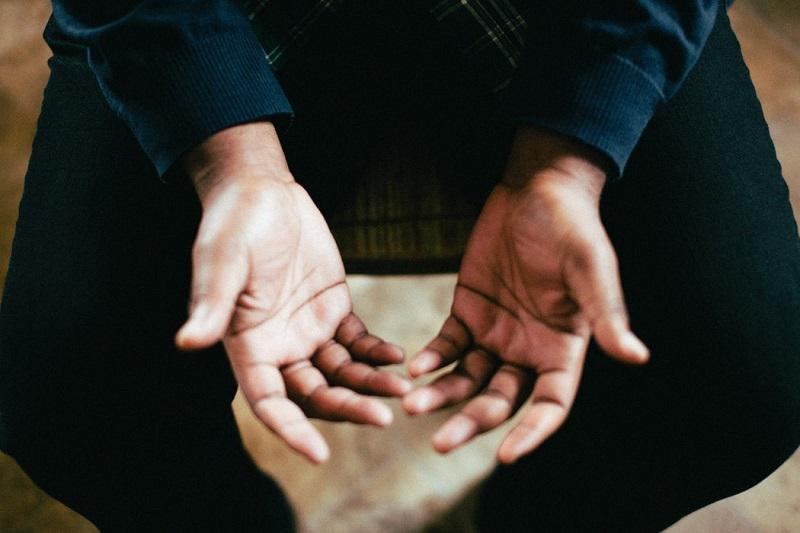Understanding Qadar - How Divine Will Works in Tangent with Our Prayers and Deeds
Faith
|
Jan 25, 2019
|
6 MIN READ

The concept of qadar in Islam is a delicate subject and one that many people, myself included, struggle with at times. The Arabic word qadar means” divine decree” or “divine will,” and in that definition you find yourself submitting to the belief that everything happens by the will of Allah (S).

Allah (S) is Al-Aleem, the most knowledgeable, and Al-Raheem, the most merciful. Whether we understand His judgement and reason is irrelevant and not for us to decipher. Our logic as humans is limited in capacity, and we will never fully understand the reasoning behind many things that happen in our life. But, one thing is for certain: Allah has decreed these things for a reason -- for our best interest -- whether it’s in this life or the next.
It’s important to remember this in any discussion about qadar.
We also must remember that as servants of Allah (S), we are not supposed to dwell deep in the concept of qadar because our minds were not created to think in that capacity. It leads us to question the hikmah or wisdom of Allah, and that may drag us down a very dangerous path in which one may end up rejecting Islam and the wisdom of Allah.

He came out, his face full of anger, and said, “You are having this debate, and I am still in your midst. Is this what I have commanded you to do? Stop doing this.”
This incident teaches us that we are not to dwell too deeply in the concept of qadar as to protect us from going astray. We should, however, understand it at its basic level. The belief in qadar is one of the six pillars of iman (faith). It is fundamental to our faith.
Why Do We Believe in Qadar?
Our belief in qadar revolves around two premises:
Benefits to Believing in Qadar
When you believe in qadar, your heart achieves a sense of peace and contentment known as yaqeen. You are content that Allah (S) has decided and knows what is best for you: “Say: Nothing shall ever happen to us except what Allah has ordained for us. He is our Mawla (protector). And in Allah let the believers put their trust.” (9:51)

When you believe in qadar, you will be more optimistic knowing that the One who has put you in your present circumstance has done so for a reason. You will (iA) trust that He who put you in difficulty will give you the strength to get out.
When you believe in qadar, you will work through or bear your trials and difficult times because, “Allah does not burden a soul beyond that it can bear…” (2:286). You know with every difficulty there will be ease, and you will have a sense of tawakul, or dependence on Allah. You will put your full trust in Allah (S), which brings about a sense of relief and comfort in times of distress: “Verily, with every hardship comes ease!” (94:6)
When you believe in qadar, you will naturally become a generous and kind person, especially to those who are less fortunate. You will know that the One who gave you what you have can easily take it away or easily bless you with more.
When you believe in qadar, you gain courage because you will be able to face tough times knowing that everything is ultimately in the hands of Allah (S).
It was narrated by Abu Al- Abbas Abdullah bin Abbas (ra), related by Tirmidhi:
One day I was riding (a horse/camel) behind the Prophet, peace and blessings be upon him, when he said, ‘Young man, I will teach you some words. Be mindful of God, and He will take care of you. Be mindful of Him, and you shall find Him at your side. If you ask, ask of God. If you need help, seek it from God. Know that if the whole world were to gather together in order to help you, they would not be able to help you except if God had written so. And if the whole world were to gather together in order to harm you, they would not harm you except if God had written so. The pens have been lifted, and the pages are dry.
Can Du’a Change Your Destiny?
Laylatul Qadar, the Night of Power, is a special odd night in the last ten days of Ramadan when the entire Quran was revealed to Prophet Muhammad (saw). During this night Allah (S) also decrees everything that will happen for the following year.
How does qadar play into all of this?
Before talking about how our du’a (prayer) can change the course of our qadar, it’s important to understand the two types of divine decree:

"Allah (S) annuls or confirms whatever He wills [of His earlier messages] - for with Him is the source of all revelation.” (13:39)
We all know that du’a is a powerful tool. Prayer and the doing of khair or good can change your qadar. It is reported that Imam Al Nawai said that sometimes people are meant to live a longer or shorter life, but because of their actions, their lifespan is either increased or decreased. Our most powerful tool to change what we do not have control over is du’a.
It was narrated from Thawban (rah) that the Messenger of Allah (saw) said (as narrated by Ibn Majah):
Nothing increases one’s life span except righteousness and nothing repels the Divine decree except supplication, and a man may be deprived of provision by a sin that he commits.
And, it was narrated from Ibn Umar (rah) that the Prophet (saw) said (as narrated by Al-Tirmidh):
Du’a may be of benefit with regard to what has already happened or what has not yet happened, so adhere to du’a, O slaves of Allah.
Put Your Trust in Allah (S)
To fully understand the concept of tawakul (trust) let’s revisit one of the ayah’s mentioned above:
Say: Nothing shall ever happen to us except what Allah has ordained for us. He is our Mawla (protector). And in Allah let the believers put their trust.” (9:51)
This ayah demonstrates the relationship between the servant and the Creator. It puts our hearts at ease knowing that Allah (S) is in control of all things.
In this ayah, Allah (S) is reassuring you that nothing will happen to you unless Allah (S) wills it. It is important to note that having tawakul, putting your full trust in Allah’s (S) hands, does not change the actions you take but rather the way in which you perceive the world and matters in your life. It is a mind set that as you continue on with your day to day and make your decisions, you are at peace knowing that at the end, the ultimate result is in the hands of Allah. He will always do what is best for you.
Tawakul is doing your part -- whether that’s in preparing yourself for an entrance exam, working hard to get a promotion or saving money to buy your dream home -- but also making du’a for what is best. It’s believing in your heart that you have done everything you can do, and the rest is up to Allah (S).
You work hard for these goals, but sometimes Allah’s plan does not match up to ours -- and for good reason.
It was reported by Omar Ibn Alkhatab (raw) (as narrated by Al-Tirmidh) that the Prophet (saw) said:
If you were to rely upon Allah with reliance due to him, then he would provide for you just as he provides for the birds. They go out in the morning with empty stomachs and return full.
They leave on empty stomachs, no one knows where their food will come from but at the end of every day they come back full with enough food to feed their young.
Do not just stay in the nest. Work for your goals, put your trust in Allah, and He will provide for you -- just as you put your trust in Allah’s (s) judgement that He has your best interest and that your ultimate fate, your qadar, is in His hands.


Subscribe to be the first to know about new product releases, styling ideas and more.
What products are you interested in?

